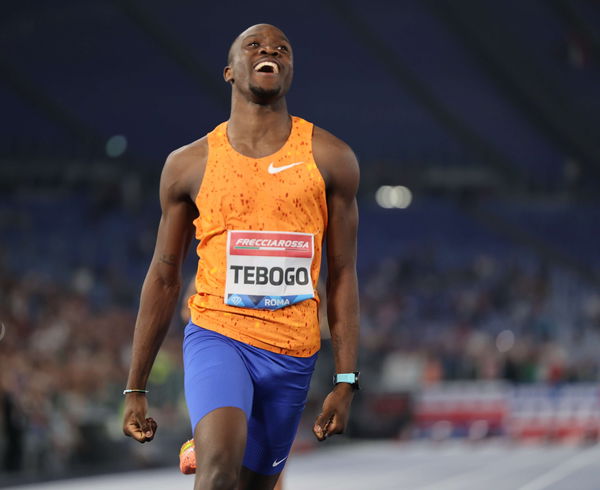
Reuters
Athletics – Diamond League – Monaco – Stade Louis II, Monaco – July 12, 2024 Botswana’s Letsile Tebogo celebrates after winning the men’s 200m REUTERS/Manon Cruz

Reuters
Athletics – Diamond League – Monaco – Stade Louis II, Monaco – July 12, 2024 Botswana’s Letsile Tebogo celebrates after winning the men’s 200m REUTERS/Manon Cruz
“I mean, I know my instincts. Not everybody has that power to see, that power to finish the race, you know. I have to start with what I can finish. If I can’t finish, who’s going to finish for me?” In the hush just before the gunshot cracks, Letsile Tebogo stands tall—shoulders loose, eyes steady, silence humming in his ears. Across the lanes, some of the world’s fastest men stretch, jump, and exhale. This is Doha, 2025. The men’s 200 meters at the Diamond League. And it’s already clear: this race, like so many before it, isn’t just about time. It’s about territory. Legacy. Change. And then bang—he’s off.
Watch What’s Trending Now!
By the curve, Tebogo has already taken control. His stride is effortless, but his intent is unmistakable. Power ripples through every step as he glides past the field, past Courtney Lindsey—the American contender—and into the finish, arms slicing the air in celebration. The African thunderbolt had struck again. Three days after that victory in the Suheim bin Hamad Stadium, Tebogo sat down with Al Jazeera and spoke the truth that’s been pulsing in every one of his performances.
In his own words, Letsile mentions, “That’s always been my goal. To snap their dominance. It was sad to see only two nations rule the sport for decades. I wanted to make a breakthrough for African athletes.” He further took his time to mention just how grateful he was for the fans’ warm reactions. He continued with, ” I aspired to be the one to make it happen and then take in the world’s response. And that reaction has been heartwarming.”
ADVERTISEMENT

ADVERTISEMENT
But who are the ‘Two Nations’ that he mentions? Well, they are the United States and Jamaica—titans of short-distance sprinting for nearly three decades. From Michael Johnson to Usain Bolt, from Carl Lewis to Yohan Blake, their flags have defined the sprinting podiums of the Olympics and World Championships. Their athletes were the gatekeepers of greatness. But now, a new name is crashing through the gates. Letsile Tebogo—young, fearless, and proudly Motswana.
Letsile Tebogo’s rise didn’t come quietly. At the 2024 Paris Olympics, he stunned the field by seizing gold in the men’s 200m, breaking through a lineup of decorated champions. He followed that with a silver-medal performance in the men’s 4x400m relay, anchoring Botswana to one of its greatest moments on the global track. Even in the 100m, where he finished sixth, his presence shook the hierarchy. Now, in 2025, he’s been nearly untouchable in the Diamond League.
ADVERTISEMENT
Six wins. Multiple continents. One purpose: to prove that African athletes can not only compete—they can lead. With each race, Tebogo isn’t just chasing medals. He’s chasing meaning. Every time he lines up, he carries not just Botswana’s hope but the ambition of an entire continent too often overlooked in the sprinting world outside of a few exceptional names. Tebogo is more than a contender—he’s a movement. And this movement has brought popularity to him, adding to each chapter of victory.
Letsile Tebogo earns popularity with victories
When World Athletics President Sebastian Coe stood at the podium to announce Letsile Tebogo as the new ambassador for the global Kids’ Athletics program, his words carried more than formality—they carried admiration. “I am always delighted when a talent like Letsile Tebogo emerges through our competition structures. It shows other young, talented athletes the pathway.”
ADVERTISEMENT
Top Stories
Scottie Scheffler Faces Scrutiny After Taking Out Anger on Golf Club at WM Phoenix Open: ‘Washed’

Jordan Spieth Throws Bizarre Temper Tantrum as Opening Round at WM Phoenix Open Becomes a Challenge

Rob Gronkowski Demands Severe Punishment for Andy Reid After Bill Belichick Snub

PGA Tour Split Into Two as Scottie Scheffler Confirms Stance on Patrick Reed’s Return

Multiple PGA Tour Pros Stopped from Playing as WM Phoenix Open Round Is Canceled Over Recurring Problem

Drake Maye Reveals Shoulder Injury Update as Patriots QB Announces News On Super Bowl Availability


ADVERTISEMENT
Sebastian continued to heap praises on the young Olympian as he said, “Letsile is confident, determined, and humble, and is already inspiring a whole generation of young potential athletes and children as they learn to make sport part of every day.” It is pretty obvious to see just how much impact Tebogo has already made on the world of track and field, as is evident by the warm words of the WA president himself.
But at just 21 years old, Tebogo isn’t just rewriting record books—he’s reshaping what’s possible. From the dusty lanes of Botswana to the Olympic stage, the young sprinter has quickly become more than an athlete. He’s become a symbol. A disruptor. A beacon for a generation that dares to believe there’s more beyond the US-Jamaican axis that has long ruled short sprinting. Take his U20 world record in the men’s 100m: a blistering 9.90 seconds, set with the kind of ease that made the world lean in.
That record still stands. Just behind him on that all-time list? Tate Taylor, an American, is still chasing the shadow Tebogo left behind. And it wasn’t just youth records. It was a signal of things to come. On 17 February 2024, in a sunlit meet in South Africa, Tebogo clocked the fastest ever 300m run on African soil—a performance that sent tremors through the sprinting world and declared, without subtlety, that he was ready for Paris. And ready he was.
ADVERTISEMENT
Now, as the Olympian steps into the role of global ambassador for youth athletics, Tebogo’s influence expands beyond lanes and medals. He becomes a face that young boys and girls around the world can look to—not just for speed, but for vision. Proof that greatness can grow anywhere. That champion can rise not only from Kingston or Atlanta, but from Gaborone too. Letsile Tebogo once ran to make a name. Now, he runs to leave a legacy.
ADVERTISEMENT
ADVERTISEMENT
ADVERTISEMENT